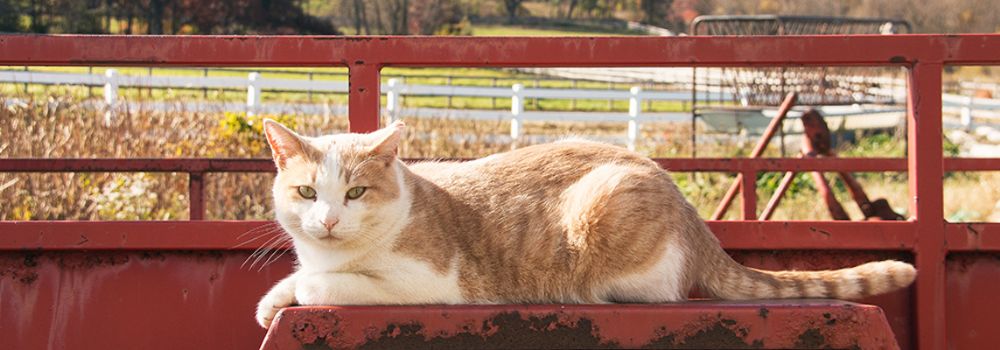
Megestrol Acetate FAQ

In 2014, I had the honor of helping start a high-quality-high-volume spay-neuter clinic in Nashville and serve as medical director. I don't know how many thousands of dogs and cats I spayed and neutered during my tenure there, but it was enough that my hands still remember how when I'm fortunate enough to go back for relief shifts. The last relief shift I worked was March 17th, 2020. My beloved clinic had to temporarily close on March 18th due to COVID-19. Like many similar clinics, the dedicated staff there has been asking, "What can we do?"
For those of us involved in spay-neuter services, halting our efforts has raised concerns about losing ground with progress we have made, particularly in cats. One option that some have considered is the use of a temporary contraceptive, megestrol acetate in female cats, to prevent pregnancies while our spay-neuter efforts are on hold.
Non-surgical methods of contraception and sterilization have long been a passion of mine. I hope for the day when we can say to our younger colleagues, "Yeah, it was crazy. We used to have to cut animals open and remove organs just to control fertility!" While megestrol acetate is certainly not the panacea, it is a tool in the toolbox. Of course, questions surround the use of this drug: we answer some of the most common ones below.
Frequently Asked Questions
A: Megestrol acetate (MA) is a progestin hormone. Progestins mimic the effects of naturally occurring progesterone and are used to control reproduction in many different mammals. In cats, megestrol acetate has been used to effectively prevent estrus ("heat").
A: The most practical use for MA is as a "stop-gap" measure - and adjunct to surgery. That is, it can be administered to a cat while she's "waiting" for surgery. As many cat caregivers have experienced, it is not uncommon for a cat to get pregnant and have kittens while waiting for a spay surgery. This comes up for a variety of reasons: Spay-neuter clinics often have extended waitlists for surgeries; individual cats may evade trapping; or caregivers may live far from clinics, making it difficult to arrange a time to make the trip. MA can help cat caregivers "buy some time" while waiting for their spay appointment.
A: MA is typically given orally. From a practical standpoint, it is easiest to get an oral liquid formulation (can be fish or chicken flavored) and give it directly to the cat or mix it into wet food. Several different dosing regimens have been attempted over the years. These have reportedly maximized efficacy and minimized side effects:
A: Microdosing for cat colonies: Cat colony caregivers have reported treating groups of cats with MA. Of course, doing so presents of some cats being overdosed and others being under dosed. MA has been micro-dosed at 0.1 to 0.2 mg/kg per cat put into food each week, and those doing so have reported seeing marked reduction in pregnancies. However, no peer-reviewed data exists for this dosing regimen.
A: As with any drug, side effects can occur. These side effects are best categorized according to dosage:
A: It is important to make sure that cats only receive a single dose using the low-dose regimen. If a cat does repeatedly eat more than one dose they are potentially at increased risk of side effects. However, given that the low dose is considerably lower than doses used historically for other conditions in cats, one extra dose is unlikely to cause severe side effects.
A: Based on available data, use should not exceed 30 weeks (about 7 months). Prolonged use can increase risk of side effects.
If you miss a dose, there is a risk of the cat going into estrus. However, you can administer a dose as soon as you realize you've missed one. Understanding how the drug works helps make it clear why it is okay to miss a dose: Though the drug is given each week, it does not stay in the cat's system for the whole week (on the technical side: it is actually considered a short-acting steroid because it has a half-life of only a few hours). So, you can think of it as "resetting the clock" of the estrus cycle each time it's given rather than as something that exerts its effects by staying in the body for a long time.
Megestrol acetate requires a prescription, so you will need to obtain it through your veterinarian. Overall, it is a very cost-effective drug. The cost varies depending on which compounding pharmacy your veterinarian uses and how much you need; on a "per milligram" basis, it gets cheaper the more you purchase. In our research, liquid formulations tend to be the least expensive. For veterinarians, we recommend contacting your preferred compounding pharmacy for details.
A: Oral liquid megestrol acetate needs to be compounded. Several nationally known compounders offer it in a variety of sizes and concentrations. 10 mg/ml concentration is likely the most practical, yielding ~0.25ml per dose. Depending on the state where you practice, you may be able to order "office stock" that can then be portioned out for individual cats/clients. As with any compounded drug, be sure to pay close attention to expiration dates and make sure that any MA dispensed will still be within the expiration by the time of the last dose.
A: FeralStat was the name given to a specific compounded version of MA distributed circa 2008-2011 for fertility control in community cat colonies. It was micro-dosed at 0.1-0.2 mg/kg once per week but efficacy of this regimen has not been published.
A: Any use of MA in cats is considered "off label." This means that it has not been approved by the Center for Veterinary Medicine at the FDA for fertility control in cats. It should be noted that many common drugs used in veterinary medicine are considered off-label by regulatory standards. The safety and effectiveness has not been studied to the extent required for regulatory approval and the information available on its safety and effectiveness is from studies published in peer reviewed journals. It is available at compounding pharmacies for "off label" use.
A: The FDA requires that a drug that is prescribed "off label" can only be used if there is a veterinary client patient relationship (VCPR). The federal VCPR definition requires that veterinarians physically examine animal patients and/or make medically appropriate and timely visits to the location where the animal(s) are kept. Therefore, the federal VCPR definition cannot normally be met solely through telemedicine.
In the midst of the COVID-19 pandemic, the FDA does not intend to enforce the animal examination and premises visit portion of the VCPR requirements. This will allow veterinarians to prescribe drugs in an extralabel manner without direct examination of or making visits to their patients. However, some states (for example, Indiana) still require an in-person visit prior to prescribing off label drugs. Veterinarians should check their local regulations.
A: The Alliance for Contraception in Cats & Dogs is an organization whose mission is to advance non-surgical sterilants and contraceptives for cats and dogs and to promote their global accessibility. They have recently put out an important statement titled COVID-19 Resource: Use of megestrol acetate in female cats while sterilization surgeries are being delayed. It can be found here.

Prior to joining the team at Maddie's Fund, Dr. Mike served as program director for Target Zero, helping communities across the US achieve 90% or greater live release rates from their animal shelter systems through implementation of best practice strategies. Following veterinary school, Mike worked in rural private practice. It was there that he began volunteering with shelters and working with shelter staff and leaders to address community issues to increase lifesaving. Having caught "the bug," Mike took the plunge into the sheltering world, and completed his training in shelter medicine with the Maddie's® Shelter Medicine Program at Cornell's College of Veterinary Medicine in 2011. Since that time, he has worked clinically and as a consultant for multiple public and private animal shelters throughout the United States. He is based in Nashville, TN where he helped to start Pet Community Center, a shelter intake prevention organization.